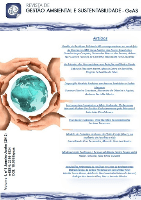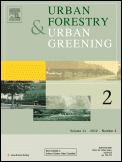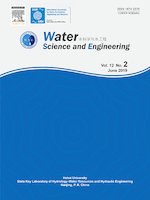
Blue-Green Systems
Scope & Guideline
Exploring Synergies Between Land and Water
Introduction
Aims and Scopes
- Nature-Based Solutions (NBS):
The journal emphasizes the use of nature-based solutions as an innovative approach to enhance urban resilience, managing water resources, and mitigating climate change impacts through ecological engineering. - Urban Water Management:
Research published in the journal often explores advanced methodologies for urban water management, including stormwater management, wastewater treatment, and the integration of green infrastructure in urban planning. - Interdisciplinary Approaches:
The journal encourages interdisciplinary research that bridges environmental science, urban planning, and socio-cultural studies, promoting holistic strategies for urban sustainability. - Hydrological Performance Assessment:
A consistent focus on evaluating and optimizing the hydrological performance of various infrastructure systems, such as bioretention systems, permeable pavements, and green roofs, is evident in the journal's publications. - Ecosystem Services and Community Engagement:
The journal highlights the importance of ecosystem services provided by urban green spaces and blue infrastructure, along with the role of community engagement in the planning and implementation of sustainable practices.
Trending and Emerging
- Climate Change Resilience:
A growing emphasis on climate change resilience is evident, with research exploring how blue-green infrastructure can adapt to and mitigate climate-related impacts, such as flooding and urban heat. - Interdisciplinary Literature Reviews:
There is an emerging trend of comprehensive literature reviews that synthesize existing research on blue-green infrastructure, highlighting co-benefits and synergies among socio-environmental factors. - Technological Integration in Water Management:
The integration of advanced technologies, such as machine learning and decision-support systems, is becoming a significant focus, indicating a trend towards data-driven approaches in managing blue-green infrastructure. - Community and Stakeholder Engagement:
Increasing attention is being paid to the role of community preferences and engagement in the planning and implementation of blue-green solutions, reflecting a shift towards participatory approaches in urban design. - Assessment of Ecosystem Services:
Research assessing the ecosystem services provided by blue and green infrastructures is on the rise, emphasizing their contribution to urban resilience and quality of life.
Declining or Waning
- Traditional Water Treatment Methods:
There is a noticeable decline in research focusing solely on traditional water treatment methods, as the journal shifts towards more integrated and nature-based approaches to water management. - Basic Water Quality Studies:
Studies that primarily address basic water quality parameters without integrating advanced methodologies or interdisciplinary insights appear to be less frequent, indicating a move towards more complex and holistic assessments. - Single-Focus Urban Green Infrastructure:
Research that examines urban green infrastructure in isolation, without considering blue infrastructure or broader ecological contexts, is becoming less common, reflecting a trend towards more integrated studies. - Historical Case Studies with Limited Application:
The journal has seen a decrease in papers that focus solely on historical case studies without providing actionable insights or applications for current urban water management challenges.
Similar Journals

Forestist
Connecting scholars to cultivate forestry knowledge.Forestist, published by AVES, is a pivotal open-access journal dedicated to the field of Forestry, providing a platform for researchers, professionals, and students to explore cutting-edge developments and research within the discipline since 1980. Operating from Turkey, this journal offers a unique opportunity for scholars to share their findings with a broad audience, contributing to the global discourse on sustainable forest management, conservation practices, and ecological research. With an impressive impact factor and a current categorization in the Q3 quartile for 2023, Forestist ranks among the essential resources in Agricultural and Biological Sciences, particularly within the realm of Forestry, as indicated by its Scopus ranking of #119 out of 174 journals. This publication is committed to fostering open access to knowledge, making research freely available while encouraging innovative studies that address the pressing challenges in forestry and environmental science.

npj Urban Sustainability
Transforming urban landscapes for a sustainable future.npj Urban Sustainability is a pioneering journal published by SPRINGERNATURE that stands at the forefront of addressing the contemporary challenges of urbanization and sustainability. Since its inception in 2021, this Open Access journal has emerged as a vital resource for researchers and professionals across various disciplines such as engineering, environmental science, and urban studies, exemplified by its commendable rankings in Scopus, including a 96th percentile rank in Engineering - Computational Mechanics and 92nd percentile in Environmental Science - Ecology. The journal offers an interdisciplinary platform for advancing knowledge and fostering innovation in sustainable urban development, making it an essential reference for those dedicated to improving urban environments. With continuous publications aligned with the mission to promote sustainable practices in urban planning and management, npj Urban Sustainability is committed to fostering a deeper understanding of the infrastructural, social, and environmental dynamics at play within urban contexts.

International Journal of Built Environment and Sustainability
Transforming Spaces: Where Sustainability Meets DesignInternational Journal of Built Environment and Sustainability, published by PENERBIT UTM PRESS, serves as a pivotal platform for the dissemination of research in the fields of architecture, urban planning, and sustainable development. With an E-ISSN of 2289-8948 and having embraced Open Access since 2014, this journal ensures that critical findings in built environment research are accessible to a global audience, fostering innovation and collaboration among researchers, professionals, and students. Although the H-index and specific scope are currently not detailed, the journal's commitment to advancing sustainable practices in the built environment makes it an invaluable resource for those dedicated to tackling the pressing challenges of sustainability in our communities. As part of its mission, the journal prioritizes high-quality, peer-reviewed articles that contribute to both academic theory and practical applications, solidifying its role in shaping the future of our built environments.

Journal of Settlements and Spatial Planning
Shaping the Future of Spatial DevelopmentThe Journal of Settlements and Spatial Planning, published by CLUJ UNIV PRESS, stands as a prominent platform dedicated to advancing research and discourse in the realms of geography, planning, and development. With an ISSN of 2069-3419 and an E-ISSN of 2248-2199, this journal has established itself since its inception in 2015, showcasing a rich array of scholarly articles that address critical issues related to spatial planning and settlement studies. As indicated by its Q3 category ranking in the 2023 Scopus database, the journal currently holds a respectable spot in the academic landscape, ranked #401 out of 821 within its field, reflecting its dedication to quality research and innovative methodologies. Researchers, professionals, and students will find valuable insights and evidence-based analyses that provoke thoughtful dialogue and inspire future studies. Operating out of Cluj Napoca, Romania, the journal caters to an international audience, emphasizing open access to a breadth of essential knowledge, thereby fostering collaboration and exploration within this vital domain of social sciences.

Revista de Gestao Ambiental e Sustentabilidade-GeAS
Advancing Sustainable Solutions for a Greener TomorrowRevista de Gestao Ambiental e Sustentabilidade-GeAS, an esteemed open-access journal published by UNIV NOVE JULHO in Brazil, focuses on critical issues related to environmental management and sustainability, fostering interdisciplinary research that spans Geography, Urban Studies, and Environmental Science. With its commitment to accessibility since 2012, GeAS serves as a vital platform for researchers, professionals, and students to disseminate knowledge and innovative solutions in the realm of sustainability. Although it currently holds a Q4 ranking in Geography, Planning and Development and Management, Monitoring, Policy and Law, and Q3 in Urban Studies as of 2023, the journal aims to elevate its impact within these fields. It is uniquely positioned to contribute to the dialogue on environmental issues, policy implications, and urban development challenges in a rapidly evolving world. The journal's location in São Paulo further enriches its relevance and expertise in addressing both local and global environmental concerns.

Smart Cities
Driving Interdisciplinary Dialogue on Smart UrbanizationSmart Cities is an esteemed academic journal published by MDPI, dedicated to the interdisciplinary exploration of urban innovation through advanced technologies, particularly in the realms of Artificial Intelligence, Electrical and Electronic Engineering, and Urban Studies. Since its inception in 2018, the journal has established itself as a prominent source of cutting-edge research, maintaining a commendable ranking within the top quartile (Q1) across its focus areas. With an impressive impact factor reflective of its influence—ranked 6th out of 279 in Urban Studies and within the top 15% in related engineering and computer science fields—the journal ensures accessibility to its content through an Open Access model, enabling researchers, professionals, and students from around the globe to engage with and contribute to the ongoing dialogue about the future of smart urban environments. Situated in Switzerland, the journal is positioned at the nexus of innovation and urban development, making it an indispensable resource for those seeking to advance knowledge and applications in smart city initiatives.

URBAN FORESTRY & URBAN GREENING
Advancing urban sustainability through innovative research.URBAN FORESTRY & URBAN GREENING is a premier interdisciplinary journal published by Elsevier GmbH, dedicated to advancing the fields of urban forestry and sustainable greening practices. With an impressive impact factor and consistently ranked in Q1 across ecology, forestry, and soil science disciplines, this journal offers valuable insights into the vital roles of urban vegetation in enhancing environmental quality and biodiversity. Since its inception in 2002, it has served as a crucial platform for innovative research, showcasing studies that address the challenges and opportunities of integrating green spaces within urban landscapes. The journal's commitment to publishing high-quality articles ensures that researchers, professionals, and students stay at the forefront of the latest scientific developments, reinforcing its significance in shaping urban environmental policy and practice. For those seeking to contribute to this vibrant field, URBAN FORESTRY & URBAN GREENING remains a vital resource for sharing knowledge and fostering collaboration among experts.

URBAN ECOSYSTEMS
Advancing Sustainable Futures in Urban LandscapesURBAN ECOSYSTEMS is a prestigious journal published by Springer, focusing on the intricate relationships between urban environments and their ecological systems. With an ISSN of 1083-8155 and E-ISSN 1573-1642, this journal has established itself as a vital resource for scholars and professionals in the fields of ecology and urban studies. Recognized within the top category quartiles, it holds a distinguished Q1 ranking in both Ecology and Urban Studies as of 2023, placing it prominently in the global academic landscape. The journal’s extensive review of urban ecological phenomena helps to inform sustainable development and policy-making, bridging the gap between scientific research and practical applications. Additionally, it enjoys a favorable position in Scopus rankings, being ranked #38 out of 279 in Urban Studies and #86 out of 461 in Environmental Science. Researchers seeking to delve into the challenges and innovations of urban ecosystems will find URBAN ECOSYSTEMS to be an invaluable addition to their scholarly resources. Although it operates under a subscription model, the journal provides rich insights essential for enhancing our understanding of sustainable urban futures.

Journal of Flood Risk Management
Innovating flood risk management for a safer future.The Journal of Flood Risk Management, published by WILEY, is a premier academic journal dedicated to advancing the understanding and management of flood risks, emphasizing interdisciplinary approaches in environmental engineering, geography, safety, and water science. Since its inception in 2009 and transitioning to an Open Access model in 2020, this journal has quickly established itself within the top quartile (Q1) across multiple categories, including Environmental Engineering and Geography, Planning and Development, reflecting its high impact and relevance in the field. With an impressive ranking among the top journals—62nd in Geography, 28th in Water Science and Technology, and 25th in Safety, Risk, Reliability and Quality—this journal serves as an essential platform for researchers, professionals, and students alike, providing them with valuable insights and innovations related to flood risk management. Situated in Denmark, the journal aims to foster collaboration and knowledge exchange, addressing critical challenges faced by societies globally in mitigating and adapting to flood risks.

Water Science and Engineering
Pioneering Insights in Civil, Structural, and Ocean EngineeringWater Science and Engineering, published by ELSEVIER, is a premier open access journal that has been disseminating vital research in the realms of civil and structural engineering as well as ocean engineering since 2008. With its ISSN 1674-2370 and E-ISSN 2405-8106, this journal plays a crucial role in advancing knowledge and innovation within the sector, evidenced by its impressive rankings in Scopus—holding the 15th position out of 105 in Ocean Engineering and 76th out of 379 in Civil and Structural Engineering, placing it in the 86th and 80th percentiles, respectively. Attaining a Q1 classification in both categories for 2023 highlights its importance and influence in the academic and professional communities. The journal addresses a broad spectrum of topics integral to water sciences, offering significant insights for researchers, professionals, and students alike. With a convergence period spanning from 2010 to 2024, it continues to explore contemporary issues and advancements, providing a pivotal platform for the dissemination of research. The journal is accessible to a global audience, reaffirming its commitment to fostering open access and enhancing accessibility to vital scientific literature.